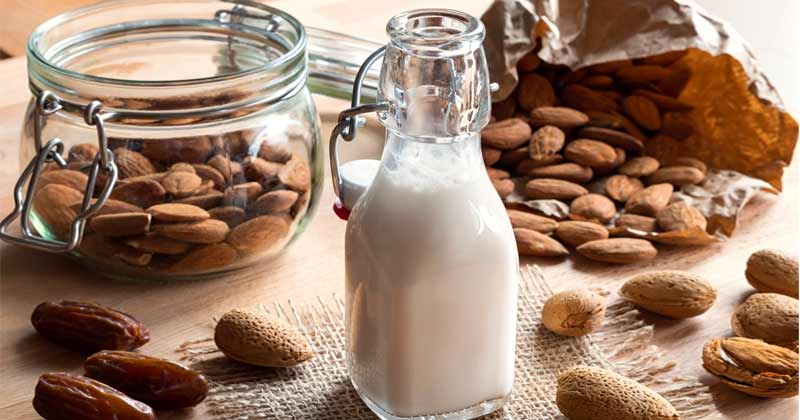Here’s a matter of fact and there’s no rocket science theory to this. Milk invariably forms the basis of several mainstream beverages that we consume on a daily basis. Whether it is Tea, Coffee, or any other delectable beverage, our relationship and interaction with milk is a memorable and long-standing one. There’s this “everness” to milk in our lives- isn’t it? But as the world constantly innovates about its eating habits and customs, with one being cautious about a lifestyle-pro approach to everything that one eats and drinks, our ways of consuming milk have also undergone tremendous change.

On that note, it remains to be asked- ever wondered about the various things you need to consider if you are having almond milk?
Whether it is almond milk or coconut milk, these varied plant-based-milks are becoming increasingly mainstream. Our lifestyles are increasingly being defined by our dependence on them- isn’t it?
So as the various plant milk’ rise out of formerly being ‘niche products,’ one has got to ask: what things you need to consider if you are having almond milk?

Water
First things first, as they say. Here’s what you need to know if you are having almond milk. Water makes up a tremendous percentage of almond milk. In fact, it may not be wrong to call it a lion’s share.
There’s around 97 percent of water in almond milk. It also happens to be the major constituent of other plant milk forms whether one speaks of soya, oat or rice milk.
Almonds
Well, obviously, right? One of the things you need to consider if you are having almond milk is the sheer quantity of almonds, but obviously.
But truth be told, here’s something that might take you by some surprise. As it turns out, usually, most almond milks contain no more than just 2% of almonds.
Typically, when one speaks of Alpro Almond Unsweetened milk, then it contains around 2.3% of almonds. But there are also those variants around that contain only 1 percent of almonds. Surprised, right?
Calcium
Here’s another thing you need to consider if you are having almond milk. Calcium is the biggest gain on having milk, an essential nutrient needed by the body, particularly for the strengthening of the muscles.
But here’s what one needs to know in the respect of calcium in regular almond milk. Since plant milks usually replace cow’s milk in our usual diets, most of the almond milks are fortified. As a result, they contain the same amount of calcium.
Stabilizers
What gives the almond milk its true texture is the presence of gellan gum and locust bean gum- these are key ingredients- that stabilize the emulsion of water and oil.
Calories
Here’s a statement of fact. In today’s times that are rife with people leading inactive, unhealthy, and sedentary lifestyles, the least that one can possibly do is to be watchful and mindful regarding one’s consumption habits.
The more cautious we are about what we consume, the lesser our chances of extolling upon our body the unwarranted load that ultimately deserves some mindful shedding.
To that regard, among the things that one needs to know if having almond milk is the calorie count.
Suggested Read: Should you eat banana on an empty stomach?
Perhaps it may surprise you that the total amount of calories in almond milk is lower when compared to semi-skimmed cow’s milk.
“Which” magazine from the UK suggests- there are around 22kcal per 100ml versus 47kcal per 100ml. It’s also lower in saturates.


